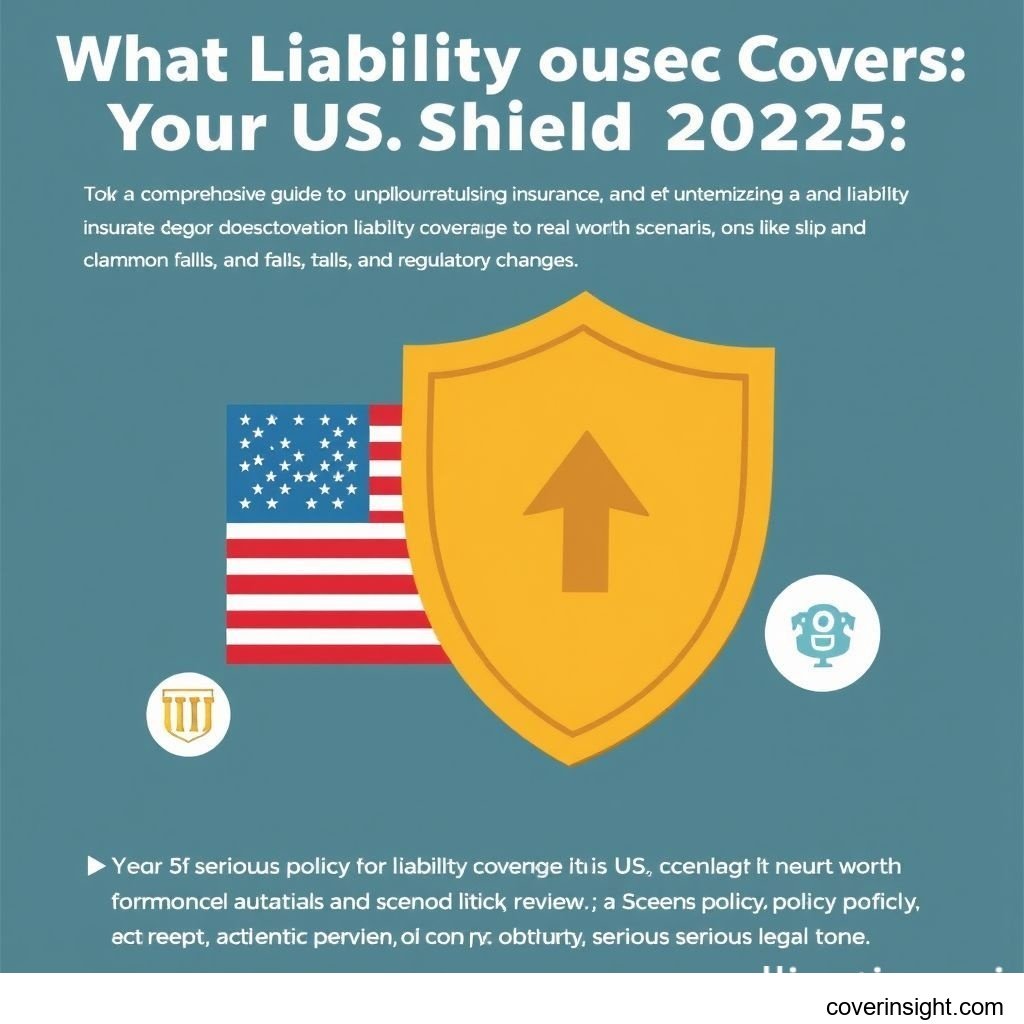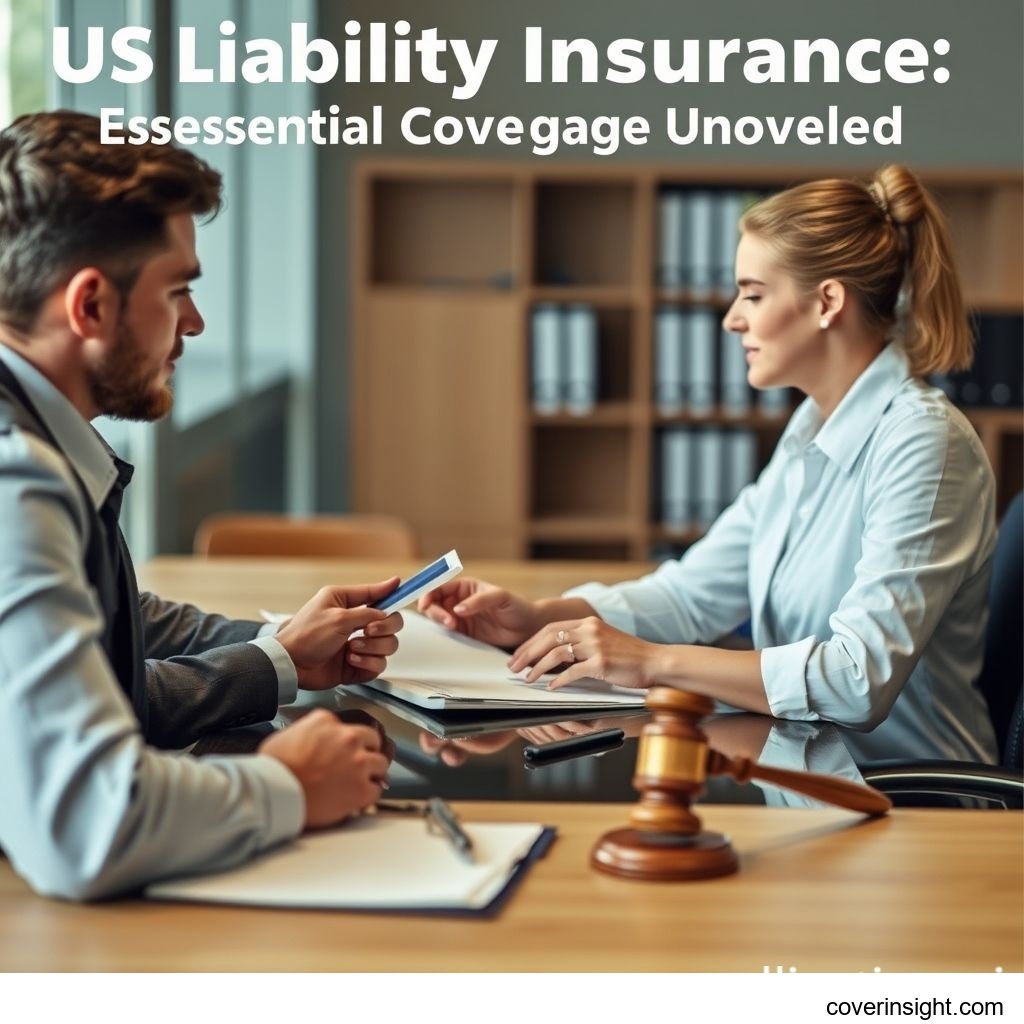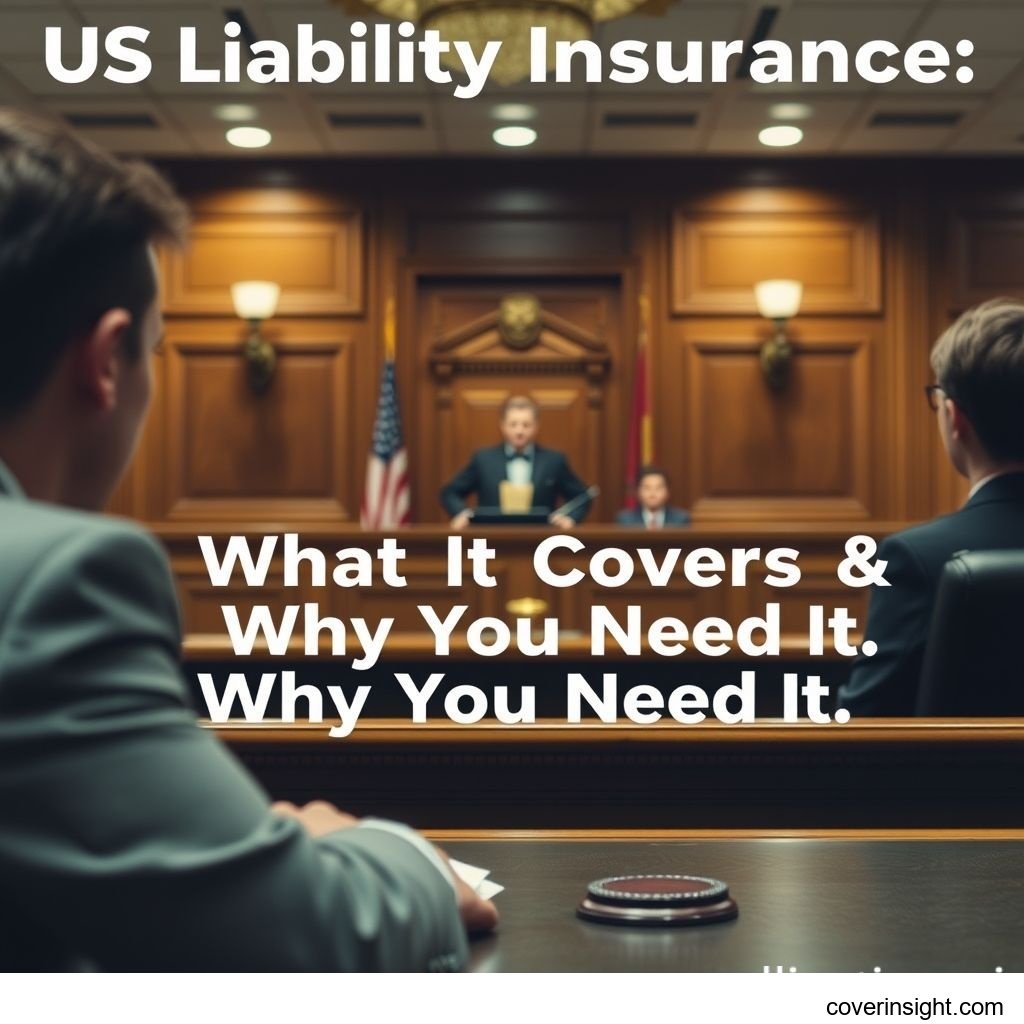What Liability Insurance Covers: Your US Shield 2025
Introduction
In the dynamic landscape of the United States in 2025, understanding what liability insurance covers isn't just about financial prudence; it's about safeguarding your future. Whether you're a homeowner, a small business owner, or simply an individual navigating daily life, the risk of being held legally responsible for harm or damage to others is ever-present. Liability insurance acts as your crucial shield, protecting your assets and peace of mind against unforeseen claims and lawsuits. It’s an essential part of any comprehensive financial strategy, ensuring that a single misstep doesn't turn into a life-altering financial disaster.
Coverage Details
What’s Included
At its core, liability insurance is designed to protect you when you are legally responsible for injuries to other people or damage to their property. This typically encompasses:
-
Bodily Injury: This is the most common component, covering medical expenses, lost wages, and pain and suffering for third parties injured due to your negligence. For instance, if a visitor slips and falls on your property and breaks an arm, this coverage would kick in.
-
Property Damage: If you accidentally damage someone else's property—whether it’s a neighbor's fence you knocked over or a client's equipment you mishandled—this part of the policy helps cover the repair or replacement costs.
-
Legal Defense Costs: Perhaps one of the most critical aspects of what liability insurance covers is the cost of legal defense. Even if you're not found liable, defending against a lawsuit can be incredibly expensive. This coverage typically includes attorney fees, court costs, and settlement amounts or judgments, up to your policy limits. This can be a real lifesaver, as legal battles can quickly bleed you dry, even if you’re in the right.
-
Personal and Advertising Injury: For businesses, this can include coverage for claims such as libel, slander, false arrest, copyright infringement, or even wrongful eviction. It’s about protecting your business reputation and operations from non-physical harms.
Common Exclusions
While liability insurance offers broad protection, it’s crucial to understand its limitations. Common exclusions prevent it from covering:
-
Intentional Acts: If you intentionally cause harm or damage, your liability policy will not cover it. Insurance is designed for accidents, not deliberate wrongdoing.
-
Criminal Acts: Damages or injuries arising from criminal activities are typically excluded.
-
Contractual Liability: If you assume liability through a contract, that specific liability might not be covered unless explicitly endorsed in your policy.
-
Professional Services: General liability insurance does not cover professional negligence. For that, you need professional liability insurance (also known as Errors & Omissions or E&O insurance).
-
Workers' Compensation: Injuries to your employees are covered under workers' compensation, not general liability.
-
Exotic Risks: Certain high-risk activities or possessions (e.g., trampolines, specific dog breeds, or hazardous materials) may be excluded or require special endorsements. Always check your policy to avoid nasty surprises down the line.
Cost Analysis
Price Factors
The cost of what liability insurance covers varies widely, as it's not a one-size-fits-all product. Several factors influence your premium:
-
Type of Coverage and Limits: Higher coverage limits and broader policy types (e.g., umbrella policies, professional liability) naturally come with higher premiums.
-
Risk Assessment: Insurers assess the likelihood of a claim. For businesses, this means looking at your industry, specific operations, and claims history. A construction company will typically pay more than a consulting firm due to inherently higher risks. For individuals, factors like owning certain dog breeds, having a swimming pool, or a history of claims can increase costs.
-
Location: Geographic location plays a significant role. Areas with higher crime rates, more litigious environments, or frequent natural disasters can see higher premiums.
-
Deductibles: Opting for a higher deductible (the amount you pay out-of-pocket before insurance kicks in) usually lowers your premium.
-
Claims History: A history of previous liability claims can significantly increase your premium, as it signals a higher future risk to insurers.
Saving Tips
Finding affordable liability coverage doesn't mean sacrificing protection. Here are some smart ways to save:
-
Bundle Policies: Many insurers offer discounts when you bundle multiple policies, such as home and auto, or business general liability with property insurance. It's often cheaper to get all your insurance from one provider.
-
Increase Your Deductible: As mentioned, choosing a higher deductible can lower your monthly or annual premiums. Just ensure you have enough savings to cover that deductible should a claim arise.
-
Implement Risk Management: For businesses, proactive safety measures, employee training, and robust risk management protocols can demonstrate a lower risk profile to insurers, potentially leading to lower premiums. For homeowners, maintaining your property, securing hazardous items, or even installing security systems can help.
-
Shop Around: Don’t settle for the first quote you receive. Obtain quotes from multiple insurance providers. Websites like the "National Association of Insurance Commissioners" can be a great starting point for understanding how to compare policies and find reputable insurers in your state.
-
Maintain a Good Claims Record: Avoiding small, easily manageable claims and demonstrating responsible behavior can keep your premiums down over time. Remember, a stitch in time saves nine, and preventing incidents is always cheaper than paying for them.
FAQs
How much does what liability insurance covers cost?
The cost is highly variable. For individuals, adding personal liability to a homeowner's policy might range from $10-$50 annually, while a standalone umbrella policy could be a few hundred dollars. For businesses, general liability premiums can range from a few hundred to several thousand dollars per year, depending on the industry, size, and risk exposure. For example, a recent report by a credible local body, such as the U.S. Small Business Administration, noted that the average cost for a basic general liability policy for a low-risk small business could be as low as $500 per year.
What affects premiums?
Premiums are primarily affected by the level of risk perceived by the insurer. This includes your claims history, the type of industry (for businesses) or property (for individuals), your geographical location, the policy limits you choose, and your selected deductible. The more risk an insurer takes on, the higher your premium will likely be.
Is it mandatory?
Generally, personal liability insurance isn't federally mandatory for individuals, but it's often a requirement for homeowners or renters through their mortgage lenders or landlords. For businesses, while not universally federally mandated, most states require certain types of liability insurance (like commercial auto or workers' compensation), and many clients or contracts will require proof of general liability coverage before doing business with you. For instance, according to data from the U.S. Chamber Institute for Legal Reform, tort costs in the U.S. were an estimated $443 billion in 2019, highlighting why many states and businesses effectively make it mandatory by requiring proof of coverage to operate, protecting everyone involved.
How to choose?
Choosing the right liability insurance involves assessing your specific risks, understanding your assets, and comparing quotes from different providers. Consider your lifestyle, business operations, and the potential worst-case scenarios. Don’t hesitate to consult with an independent insurance agent who can help you navigate the complexities and understand the nuances of what liability insurance covers. For more general guidance on understanding insurance options, you might even find useful consumer resources on sites like "Healthcare.gov", which often provide information on navigating various government benefits and consumer protections related to insurance.
Consequences of no coverage?
The consequences of operating without adequate liability coverage can be devastating. If you are found liable for damages, you could be personally responsible for hefty legal fees, medical bills, property repair costs, and pain and suffering settlements. This could lead to the forced sale of assets, wage garnishment, or even bankruptcy. Consider a real-world example: A small plumbing business in Arizona accidentally causes significant water damage to a client’s home and an antique piano during a repair. Without general liability insurance, the business owner would be personally responsible for tens of thousands of dollars in repairs and potential legal fees, which could easily bankrupt the company and impact their personal finances for years to come. Having proper coverage helps you cover your bases and protects your financial future. For a comprehensive overview, explore resources like the "Ultimate Guide: What Liability Insurance Covers in US 2025." You can also find broader consumer advice on "Insurance Resources Global" or specific guidance for home insurance on "US Insurance Home." For state-specific regulations, your "State Insurance Departments" website is always a reliable source.
Author Insight & Experience
As someone living in the US and having navigated various insurance landscapes, I’ve seen firsthand how quickly unforeseen events can turn into financial nightmares. Based on my experience, many people underestimate the value of liability insurance until they desperately need it. It’s not just about covering your financial tail; it's about the peace of mind knowing that a simple accident won't break the bank or derail your life's savings. Investing in robust liability coverage is one of those "ounce of prevention" situations that truly makes a pound of cure look like a bargain. It’s about building a solid foundation for your financial security, allowing you to focus on what truly matters without constantly looking over your shoulder.








Comments